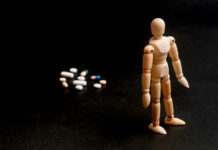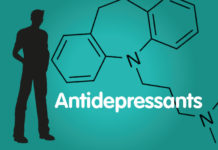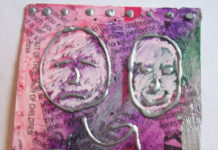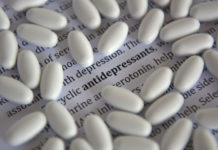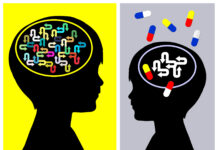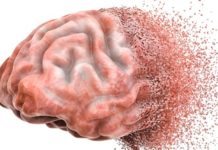Do Antidepressants Work? A People’s Review of the Evidence
After a meta-analysis of RCTs of antidepressants was published in Lancet, psychiatry stated that it proved that "antidepressants" work. However, effectiveness studies of real-world patients reveal the opposite: the medications increase the likelihood that patients will become chronically depressed, and disabled by the disorder.
Antidepressants No Better Than Placebo for About 85% of People
Researchers can’t predict the 15% who benefit from antidepressants, and the other 85% are unnecessarily exposed to the harms of the drugs.
Screening + Drug Treatment = Increase in Veteran Suicides
For the past 15 years, the VA's suicide prevention efforts have focused on getting veterans screened and treated for psychiatric disorders, with antidepressants a first-line therapy. This effort has caused veteran suicide rates to steadily rise.
Suicide in the Age of Prozac
During the past twenty years, the American Foundation for Suicide Prevention and American psychiatry have adopted a "medicalized" approach to preventing suicide, claiming that antidepressants are protective against suicide. Yet, the suicide rate in the United States has increased 30% since 2000, a time of rising usage of antidepressants. A review of studies of the effects of mental health treatment and antidepressants on suicide reveals why this medicalized approach has not only failed, but pushed suicide rates higher.
Withdrawal from Antidepressants
A review of the scientific literature related to withdrawal from antidepressants: mechanism of action; long-term effects of exposure to antidepressants; discontinuation syndromes; relapse upon discontinuation; tapering protocols.
Rigorous Study Finds Antidepressants Worsen Long-Term Outcomes
A new study conducted by Jeffrey Vittengl at Truman University has found that taking antidepressant medications resulted in more severe depression symptoms after nine years.
Antidepressant Use Leads to Worse Long Term Outcomes, Study Finds
Results from a 30-year prospective study demonstrated worse outcomes for people who took antidepressants, even after controlling for gender, education level, marriage, baseline severity, other affective disorders, suicidality, and family history of depression.
Surviving Antidepressants: An Interview with Adele Framer
That is the truth about withdrawal syndrome: It’s like a 50-50 chance that you’re going to have a problem. If you’re in the unlucky half, you’re gonna be really unlucky.
New Study Concludes that Antidepressants are “Largely Ineffective and Potentially Harmful”
A new study published in Frontiers in Psychiatry concludes that “antidepressants are largely ineffective and potentially harmful.”
Ambushed by Antidepressant Withdrawal: The Escape Story
I’m alive. More than 30,000 veterans in the past decade alone are not. I was not warned of the risks of this drug. I was not told that once on it, I might never be able to get off it, or the nightmare that would ensue when I tried. I know millions of others were not told either.
Overuse of Psychiatric Drugs is Worsening Public Mental Health, Doctor Argues
A new research article asserts that the overuse of psychiatric drugs may create neurobiological changes that hamper long-term mental health recovery.
The Whistleblower and Penn: A Final Accounting of Study 352
After 18 years, the full story of the scientific corruption in a study of paroxetine for bipolar disorder, and the psychiatrist who blew the whistle.
Placebo Effect—Not Antidepressants—Responsible for Depression Improvement
In adolescent depression treatment, those who received a placebo but thought they received Prozac improved more than those who received the drug and knew it.
Common Side Effects Leading to Antidepressant Discontinuation
New research finds the negative drug effects most commonly associated with initiating antidepressant discontinuation are anxiety, suicidal thoughts, vomiting, and rashes.
Antidepressants Blunt Ability to Feel Empathy
A new study suggests that taking antidepressants impairs empathy, while the experience of depression itself does not.
Study Examines Experience of Long-Term Antidepressant Use
The use of antidepressants has increased substantially in recent years, yet relatively few studies have asked patients about their experiences with these drugs. A...
Antidepressant Withdrawal Symptoms Linked to Life-Altering Consequences, New Study Shows
A new study reveals that withdrawal symptoms from antidepressants can last years, disrupting lives and relationships.
New Data Show Lack of Efficacy for Antidepressants
An article published this month in the journal BMC Psychiatry suggests that there is a lack of efficacy for SSRIs and that they significantly increase the risk of serious side effects.
Less Than a Quarter of Those with Depression Respond to Treatment in Real Life
In a real-world setting, less than a quarter of patients diagnosed with depression improved with medication, hospitalization, and therapy.
Antidepressant Use Linked to Dementia
A new study finds that elderly individuals using antidepressants are at significantly higher risk for dementia compared to depressed individuals who did not take the drugs.
Hyperbolic Tapering off Antidepressants Limits Withdrawal
New research by Jim van Os and Peter Groot finds that using hyperbolic tapering to discontinue antidepressants reduces withdrawal effects.
Summing up the STAR*D Scandal: The Public was Betrayed, Millions were Harmed, and the...
American psychiatry, the NIMH, the larger medical community, and mainstream media have betrayed the American public by failing to make this scandal known.
Understanding the Neurobiology of Post-SSRI Sexual Dysfunction
Post-SSRI sexual dysfunction (PSSD) may be a common adverse effect of antidepressants. Researchers are now attempting to understand the neurobiology behind it.
Anticholinergic Psychiatric Drugs Linked to a 50% Increase in Dementia
People who take anticholinergic drugs, such as antidepressants and antipsychotics, are at a 50% higher risk of dementia.
Over 1,000 Antidepressant Users Describe how Their Personal Life has Been Affected
Survey examines adverse personal and interpersonal effects of antidepressants and the impact of polypharmacy




